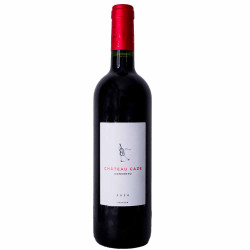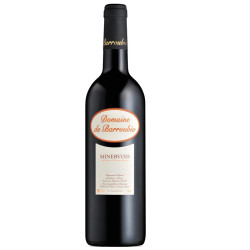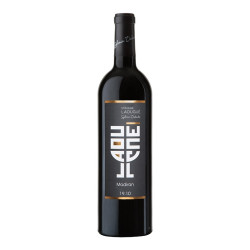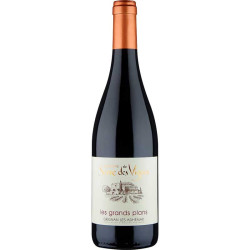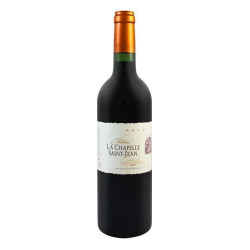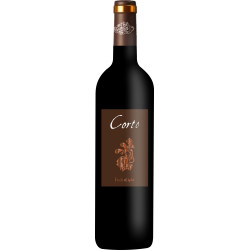Free delivery on purchases of €150 or more per winegrower in France and €250 in Europe (excluding United Kingdom)
Free delivery on purchases of €150 or more per winegrower in France and €250 in Europe (excluding United Kingdom)
-
- Great Offer
-
Our wines
-
-
By colors
-
All the wines
-
-
-
All Regions
-
-
-
-
Our organic & natural wines
-
-
Our Champagnes & Spirits
-
-
All Champagnes
-
-
Spirits
-
All the spirits
-
-
-
Our winemakers
-
-
-
winemakers
-
-
-
Our advice
-
-
Find your wine
-
-
-
- Our commitment !
-
- Great Offer
-
Our wines
-
-
By colors
-
All the wines
-
-
-
All Regions
-
-
-
-
Our organic & natural wines
-
-
Our Champagnes & Spirits
-
-
All Champagnes
-
-
Spirits
-
All the spirits
-
-
-
Our winemakers
-
-
-
winemakers
-
-
-
Our advice
-
-
Find your wine
-
-
-
- Our commitment !
Our current favorites
INVESTING IN WINE: HOW DO YOU GET STARTED?

Investing in Wine: A Comprehensive Guide to Starting Your Wine Investment Journey
Whether you're looking to invest in a field that interests you or simply want to place your money wisely, fine wines have become increasingly sought after internationally. The steady growth in demand makes wine a good long-term investment. However, to ensure you don't lose your money, there are crucial factors to consider. Follow our guide to learn how to start and apply our tips before investing in wine.
What Wines to Buy for a Good Investment?
Instead of searching for numerous small bottles across the globe, it’s better to focus on the best vintages and the most prestigious appellations. Grand crus from Bordeaux, Burgundy, and the Rhône Valley are among the most sought-after wines worldwide. Prestigious appellations reassure both investors and consumers, making them increasingly speculative.
Bordeaux wines sell easily on the markets, making them a good option for beginners in wine investment. If you have the means, top-class Bordeaux crus are a solid investment because demand remains high, and the best vintages see their prices rise year after year. However, as these wines are very expensive, we recommend starting with good second-growth Bordeaux wines, typically priced between 60 and 200 euros per bottle. They are more accessible and reduce your risk of loss.
For seasoned connoisseurs, consider the Rhône Valley or Burgundy for your investments. By focusing on leading or promising estates and winemakers, you can achieve significant returns on resale. It’s also important to follow basic diversification rules for your wine portfolio and not put all your eggs in one basket, even if it's a highly regarded vintage or region. Some promising vintages have such high prices at primeur that they struggle to appreciate further.
Where and When to Buy Wine for Investment?
To start buying your first wine investments and cases, you can visit primeurs. Generally, they offer good deals (except when starting prices are too high) because many châteaux and winemakers provide discounts. Purchases are made directly from the estate or château right after the harvest, during vinification or aging. The wine is then delivered to you when it’s commercialized. If you have time to visit the vineyard, you can also buy directly on-site to avoid intermediaries.
Auction sales are also an excellent way to acquire bottles and expand your wine collection. Whether physical or online auctions, where numerous websites specialize in wine auctions, you can find good deals. However, while prices are often significantly lower than market rates, it is very difficult to verify how the bottles have been stored, making the investment riskier, especially with older vintages.
Similarly, be extra cautious when buying wine from a private seller. It is difficult, if not impossible, to ensure that the wine has been stored under optimal conditions, such as being kept lying down in a cellar, protected from sunlight and movement, at a stable temperature between 12°C and 14°C, and with humidity levels between 60% and 80%.
Where to Store Your Bottles When Investing in Wine?
As previously mentioned, storing your bottles in a cellar and under proper conditions is crucial if you wish to invest in wine or simply preserve wines over the long term. The way you store your wine will have an irreversible impact on its development. Unlike gold or financial products, wine is a “living” and fragile product, and it is essential to invest in a good wine cellar if you choose to store it yourself. Don’t forget to include your investment in your home insurance if you store your valuable bottles at home. By taking these precautions, you ensure that your investment does not depreciate and can reassure future buyers. Finally, if you prefer not to take on this responsibility or lack space at home, you can opt for specialized wine storage services or online wine investment platforms.
Our nuggets
Related articles

WHICH WINES TO CHOOSE FOR YOUR WEDDING RECEPTION
At a wedding, we all want things to go according to plan and for our guests ...

WHAT WINE TO DRINK FOR A ROMANTIC DINNER?
Whether it's to celebrate Valentine's Day, a wedding anniversary, or simply ...
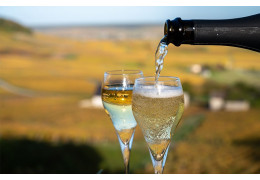
TOP 3 BEST CHAMPAGNES UNDER 21 EUROS
A festive product par excellence, champagne is a welcome addition to our tab...

DISCOVER OUR 4 BEST-VALUE CRÉMANTS!
As we all know, the price of a good bottle of champagne tends to go up every...
